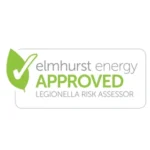At FRA London, we provide trusted, fully insured fire safety services for homes and businesses across London. Our qualified team offers independent, cost-effective solutions tailored to your property, ensuring full compliance and complete peace of mind.
Fire Safety Certificate in London
Starting From £69
In London, all non-domestic and local properties must meet the fire safety standards and maintain a fire safety certificate. The certificate ensures that the building complies with the regulatory systems or reforms of the Fire Safety. Order 2005 confirms that all living premises are well-equipped to handle fire risks.
Affordable Pricing
Prices may vary based on property location, congestion, and parking charges

Here’s what you need to understand:
- Fire Risk Assessment:
A fire risk assessment involves determining potential fire hazards, estimating the likelihood of a fire, and determining necessary preventive measures. A skilled specialist performs it. - Prepare Your Premises:
Ensure the fire extinguishers are easily available, the emergency exits are unobstructed, and your property has working fire alarms. Complete maintenance records and a fire safety plan are examples of proper documentation. - Schedule an Inspection:
When your property is fully prepared and compliant, schedule an inspection with the local fire authority. Any issues found during the inspection must be resolved immediately. - Documentation and Certification:
Send in all necessary documentation, such as the finished fire risk assessment and other pertinent papers, such as staff fire safety training certification. After being approved, you will be given the Fire Safety Certificate.
Understanding the Importance of a Fire Safety Certificate
- Explanation of the purpose and significance of a Fire Safety Certificate.
A fire safety certificate is essential for demonstrating that a building meets fire safety regulations. It ensures that it is well-equipped to control and prevent fire-related incidents. This certificate confirms that precautions such as extinguishers, alarms, and clear evacuation routes are in place. Having this certificate not only protects lives but also minimises property damage. - Legal requirements for properties in Greater London.
In Greater London, the Regulatory Reform (Fire Safety) Order 2005 mandates that all non-domestic properties undergo a fire risk assessment to obtain a fire safety certificate. Landlords, property owners, and employees are responsible for ensuring that their buildings comply with these regulations, which reduces fire risks. Non-compliance can lead to potential legal actions and heavy fines. - How it ensures safety and compliance with fire safety regulations.
The fire safety precautions ensure that the property has undergone a thorough inspection and that all fire prevention and safety systems function. This includes sprinklers, fire alarms, and marked areas. Certification and regular audits ensure that the premises continuously comply with safety regulations. This reduces the risk of incidents and enhances the overall safety of occupants.


Do You Need a Fire Safety Certificate?
It depends on your property’s use and occupancy whether it requires a fire safety certificate. Generally, a fire safety examination is necessary for any non-domestic facility, including public buildings, commercial spaces, and places of employment.
- Criteria for determining if a property requires a Fire Safety Certificate.
A Fire Safety Certificate is necessary for non-domestic premises, such as those with many residents (like HMOs) or buildings with fire dangers. The criteria include the property’s use, occupancy, and potential fire dangers, guaranteeing compliance with fire safety requirements. - Certification is required for various types of properties, such as Residential, Commercial, and HMO (House in Multiple Occupations).
Different properties require fire safety certifications, such as commercial properties (shops and offices), Houses in Multiple Occupations, and residential buildings such as apartments and flats. These properties must meet fire safety regulations to ensure the safety of occupants. - Common scenarios where certification is mandatory.
Certification is mandatory in several situations, such as converting a property from residential use, operating an HMO, or managing a commercial space. Additionally, up-to-date fire safety is required if you rent out properties or manage public buildings.
Types of Fire Alarms and Systems for Certification
Various fire alarm systems are certified according to their performance and installation style to guarantee adherence to fire safety laws.
Battery-Powered Alarms
Battery-operated fire alarms are the best option for smaller facilities like residential houses. These alarms are straightforward to install and maintain but require regular battery inspections and replacements to ensure operation.
Mains-Powered Alarms
Alarms that run on the mains are directly linked to the building’s electrical infrastructure. These alarms frequently include a battery backup to guarantee that they continue to function during a power outage. Verifying that certified specialists correctly place the alarms is crucial for certification.
Fire Alarm Panel Systems
Fire alarm panel installations are traditionally located in larger or commercial properties. These systems consist of several alarms linked to a central control panel to identify and monitor problems quickly.
Explanation of compliance requirements for each type.
Battery-Powered Alarms
To be certified, battery-operated alarms must undergo routine testing and have new batteries installed as needed. Compliance necessitates installing the alarm according to BS 5839-6 and ensuring it is positioned correctly.
Mains-Powered Alarms
Alarms that run on the mains must adhere to BS 5839-1 regulations, have a backup power supply, and be professionally installed.
Fire Alarm Panel Systems
For commercial properties, fire alarm panel systems must meet BS 5839-1 standards. All associated components, including detectors and control panels, require regular maintenance.
Fire Alarm Grades for Certification
The British Standard for fire detection and alarm systems in residential buildings is BS 5839-6. It contains instructions on how to design, install, and maintain different grades of fire alarm systems. This standard is essential for adhering to fire safety standards and guarantees adequate house fire protection.
Grade A Systems
Grade A systems include detectors, control panels, and alarms connected to the central system. These are common in commercial properties and must meet BS-5839-1 standards for operations and maintenance.
Grade C Systems
Grade C systems include main-powered alarms with a standby power supply and standard control. They are typically used in HMOs and larger residential properties, which require regular testing.
Grade D1 Systems
Grade D1 system features main-powered alarms with long life and non-removable batteries. This system is for commonly small residential buildings with installation per BS 5839-6 and regular checkups.
Grade D2 Systems
This system is similar to D1, but batteries can be replaced. A Grade D2 system must also be maintained and installed to maintain BS 5839-6 standards. Mostly used in smaller industries.
Grade F1 Systems
Grade F1 system has battery-powered alarms but with long battery life. These alarms are typically used for small domestic properties and must comply with BS 5939-6 placement requirements.
Grade F2 Systems
The Grade F2 system is similar to F1 but uses standard replaceable batteries. These systems are the simplest. They ensure that alarms meet installation standards and that batteries are all functional.
Details on coverage levels
To achieve the highest level of safety, LD1 (Maximum safety) mandates the installation of detectors in every room, including living areas, kitchens, and bedrooms. Commonly used in homes and offices, LD2 (Standard Coverage) requires detectors in high-risk locations such as escape routes, kitchens, and living rooms.
Often utilised in small residential premises, LD3 (Basic Coverage) provides basic but necessary security for escape routes such as corridors and stairs.
Process of Obtaining a Fire Safety Certificate in Greater London


Who Can Issue a Fire Safety Certificate?
Only professionals who meet specific requirements are authorized to issue a Fire Safety Certificate. To ensure they adhere to fire safety regulations, certified fire safety inspectors must hold the appropriate accreditation, such as registration with the Institute of Fire Safety Managers (IFSM).
Certified private inspectors and local fire departments are responsible for conducting inspections and issuing certificates. Public buildings are typically inspected by local authorities, while residential and commercial premises are inspected by qualified private experts registered with reputable bodies like IFSM.
Legal Responsibilities and Penalties for Non-Compliance
The Regulatory Reform (Fire Safety) Order of 2005 mandates that landlords and property managers ensure that their buildings adhere to fire safety regulations. This entails getting a current Fire Safety Certificate and conducting routine fire risk assessments.
Significant consequences might arise from noncompliance, ranging from infinite fines or imprisonment for egregious violations to fines of up to £5,000 for small infractions. Property owners who violate fire safety regulations may potentially face legal repercussions, particularly if there are injuries or fatalities.


Why Choose Us for Your Fire Safety Certification Needs?
Geographical Breakdown of London’s Districts
Frequently Asked Questions (FAQs)
What properties need a Fire Safety Certificate?
All non-domestic structures, such as commercial spaces, offices, and houses with multiple occupants (HMOs), must have a fire safety certificate. To ensure compliance with fire safety rules, buildings undergoing major renovations or changes in usage must also get this certificate.
How often do I need to renew my Fire Safety Certificate?
Fire safety certificates are usually good for one year. After this time, a renewal inspection is necessary to guarantee continued compliance. Regular fire risk assessments should be maintained to ensure safety standards, and the certificate should be renewed as local fire authorities require.
Can I carry out a fire risk assessment myself?
While small residential properties may occasionally be able to perform their evaluations, it is highly advised that licensed specialists perform fire risk assessments for commercial and multi-occupancy structures.
What happens if I still need to get a Fire Safety Certificate?
If a fire safety certificate is not obtained, there may be severe fines, legal repercussions, and even jail time for infractions. In addition to putting passengers at risk, noncompliance might result in problems with insurance.
Contact Us for Fire Safety Certification in Greater London
Are you prepared to make sure your property satisfies fire safety requirements? In all of Greater London, FRA London provides certified fire safety evaluations—our team of skilled. Experts are here to assist you whether you require a new Fire Safety Certificate or a renewal. Contact us for a free quote or to schedule an assessment to protect your property and its people.
Please fill out our inquiry form . You can also contact us directly at 020 4600 4470 for prompt support. Make sure you comply with fire safety right now!










